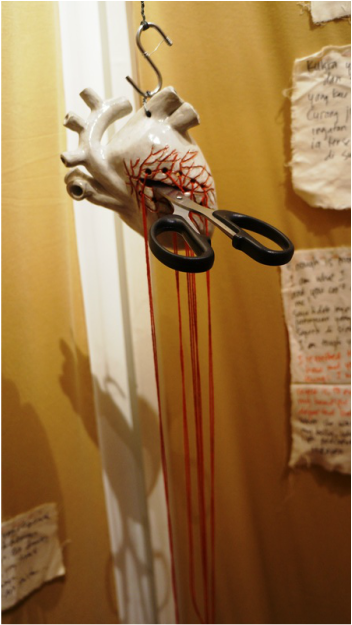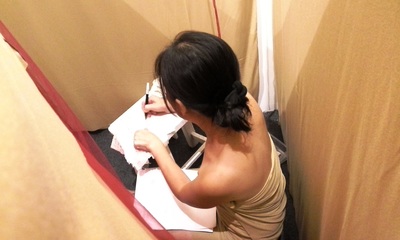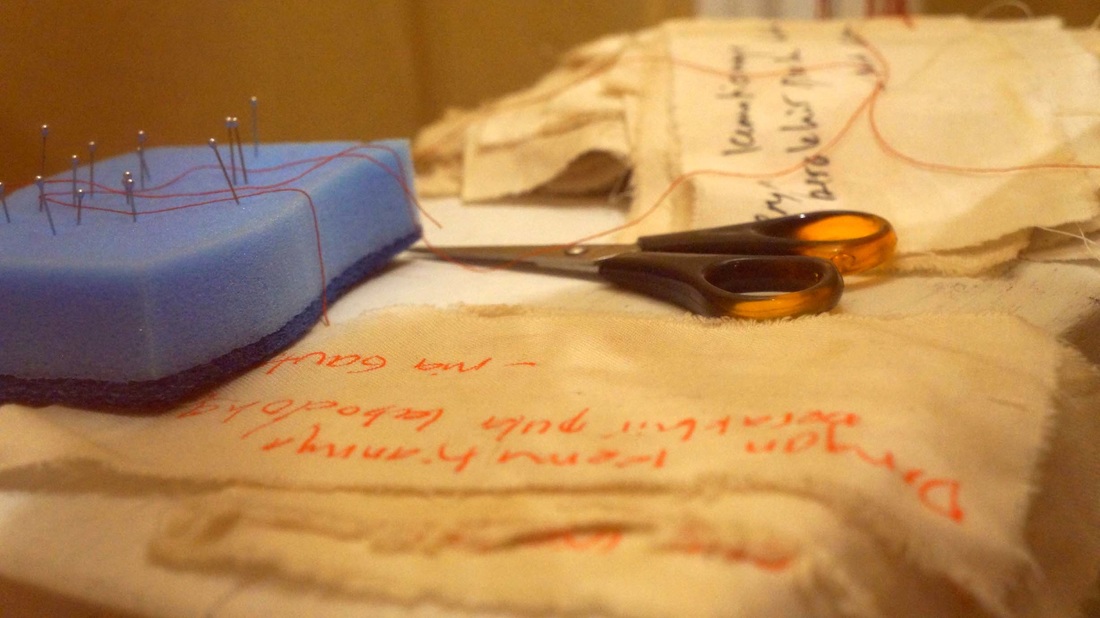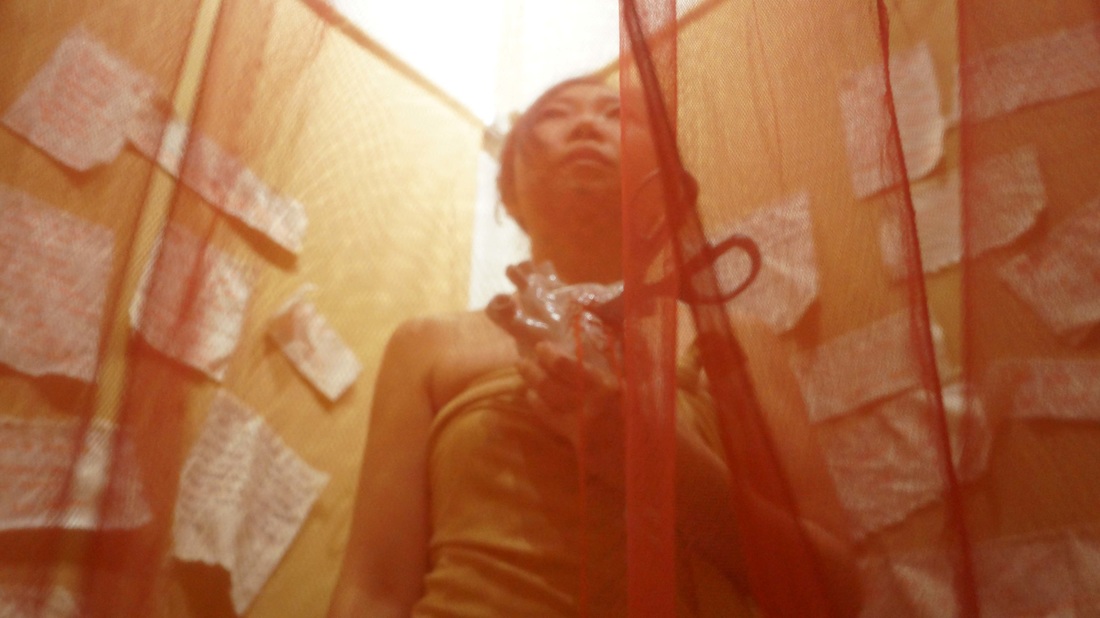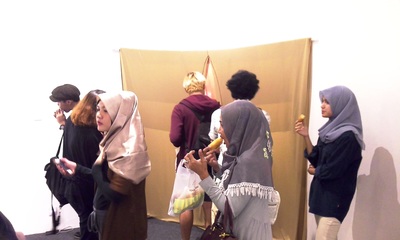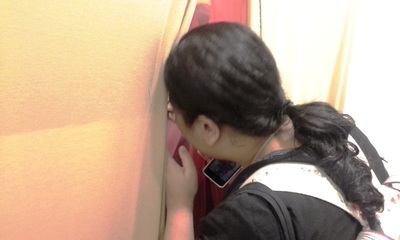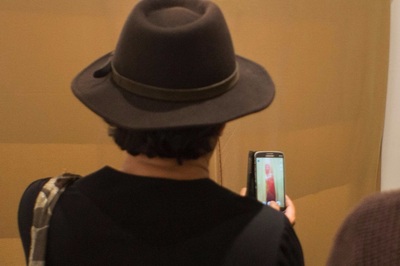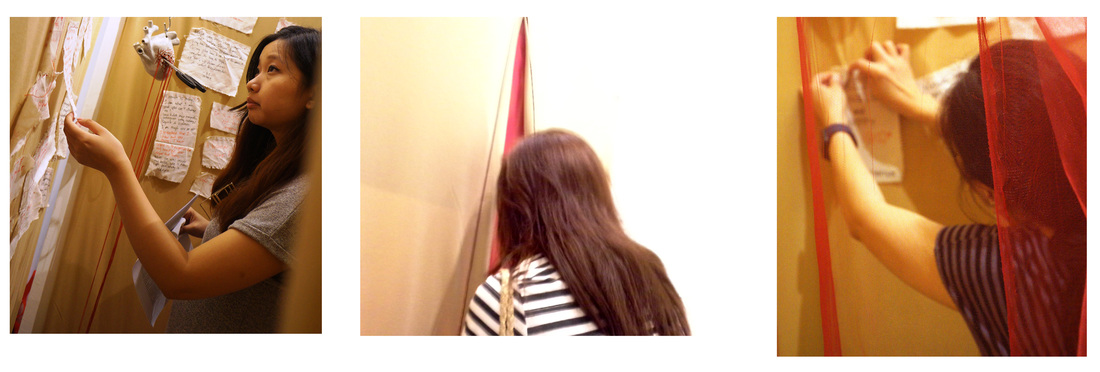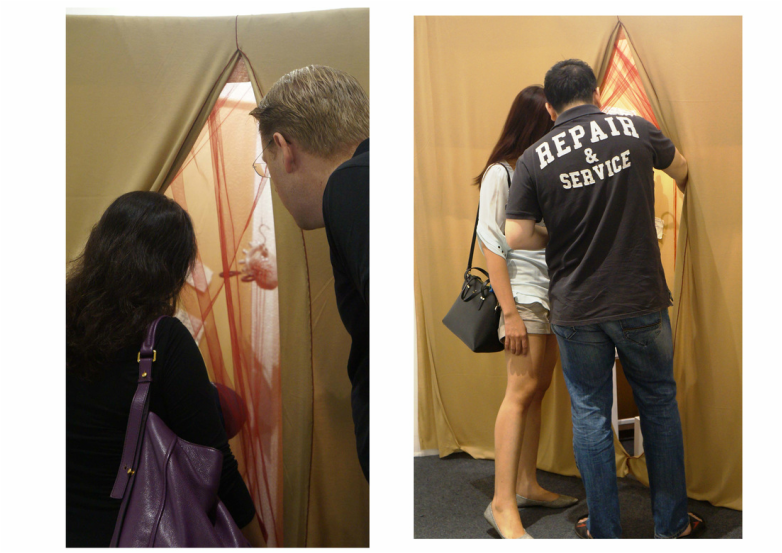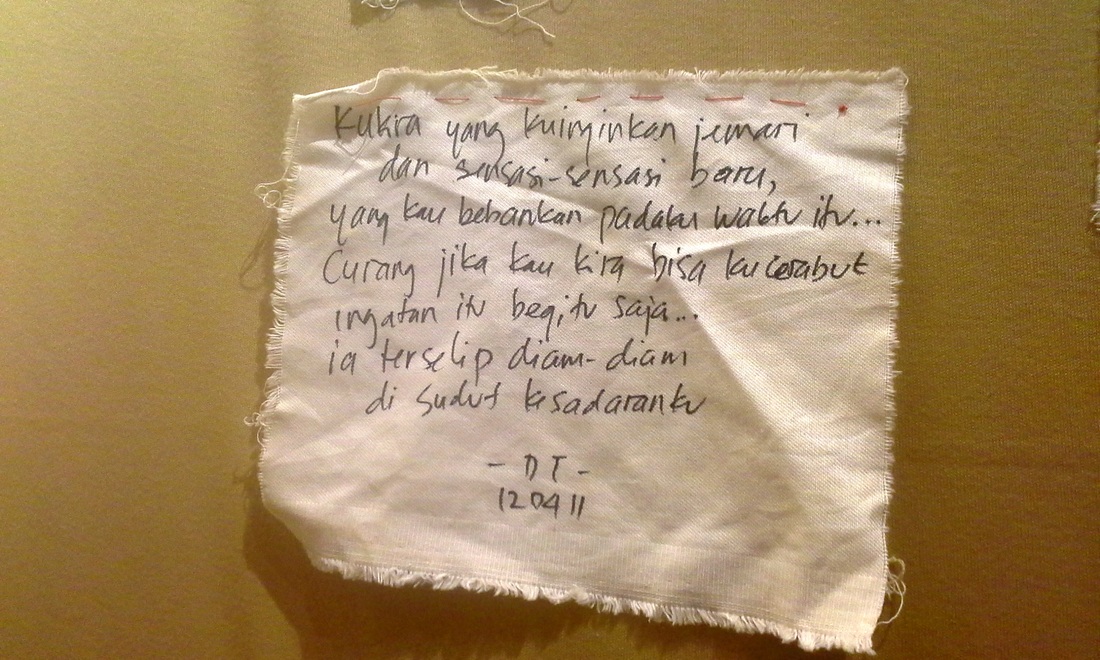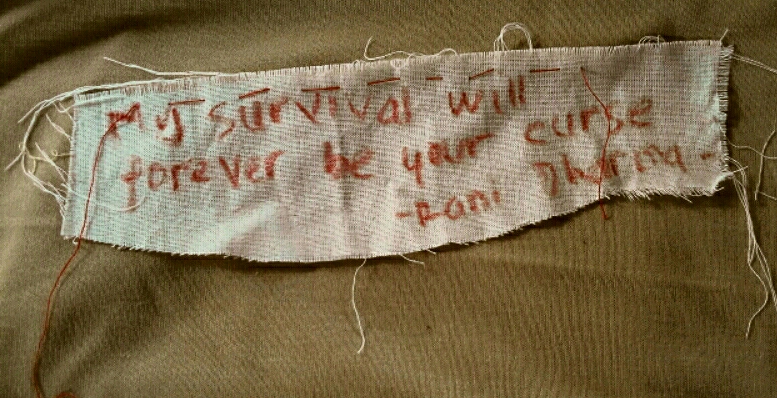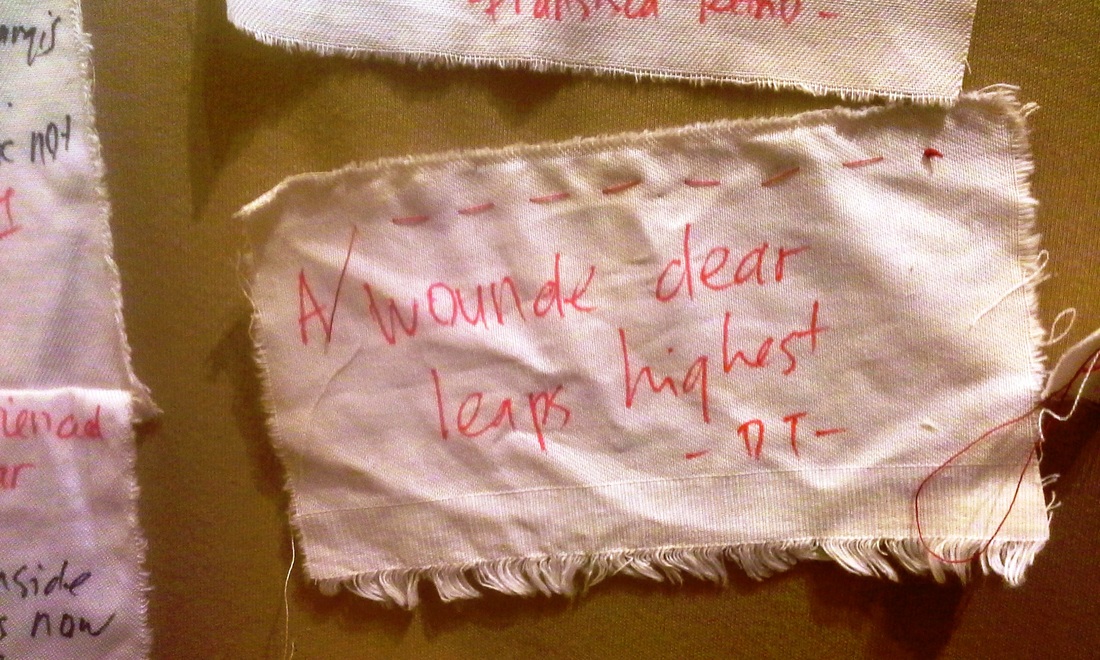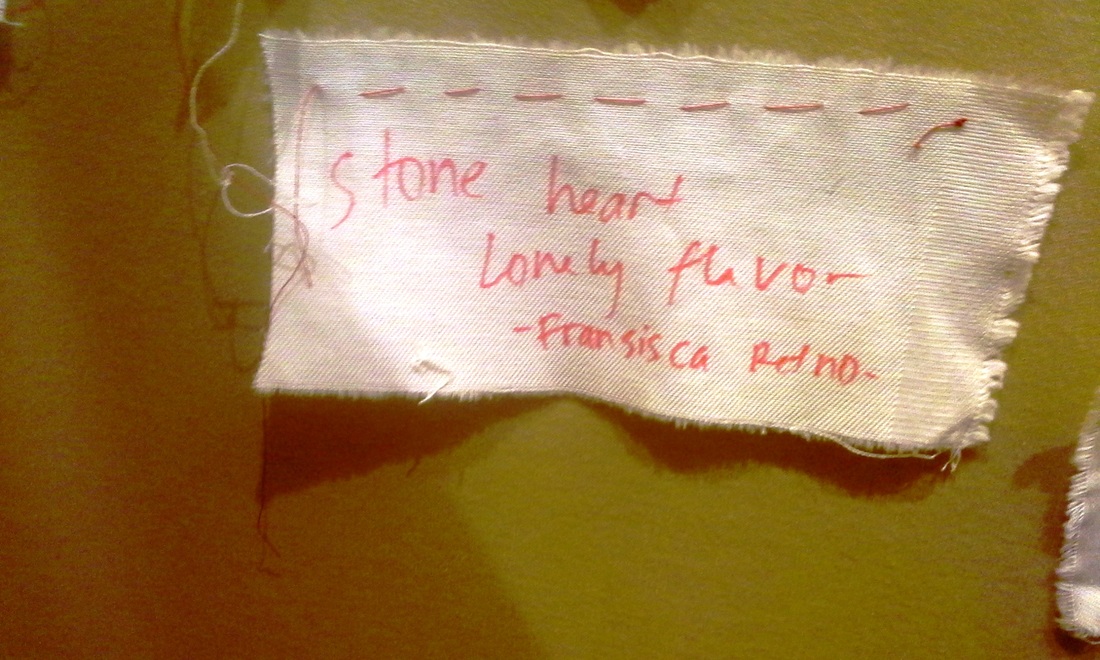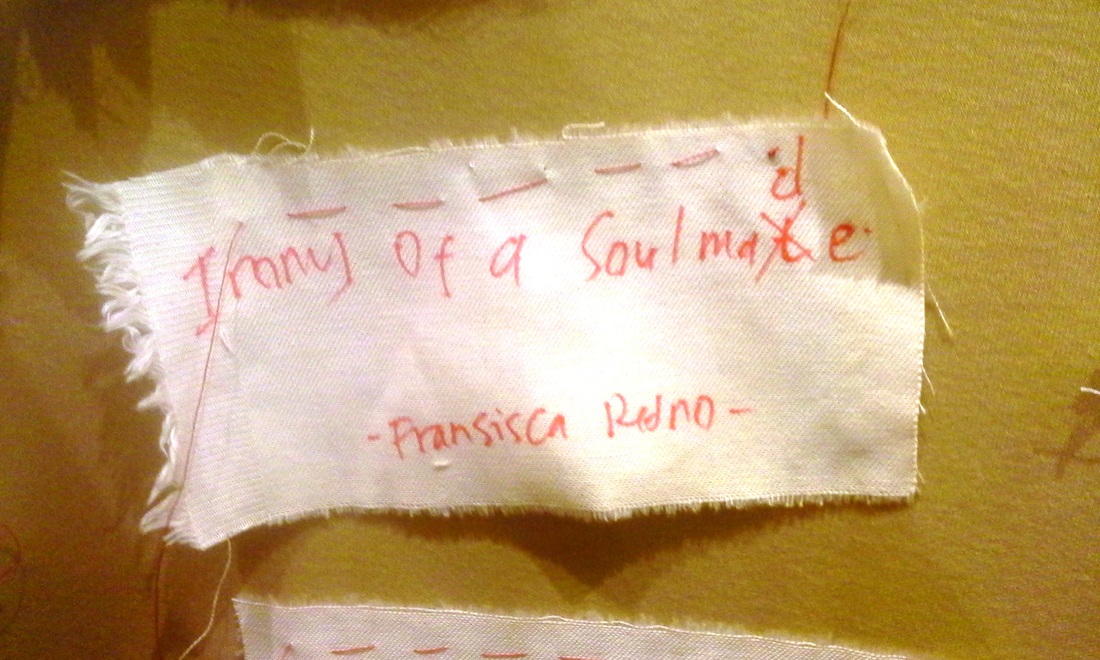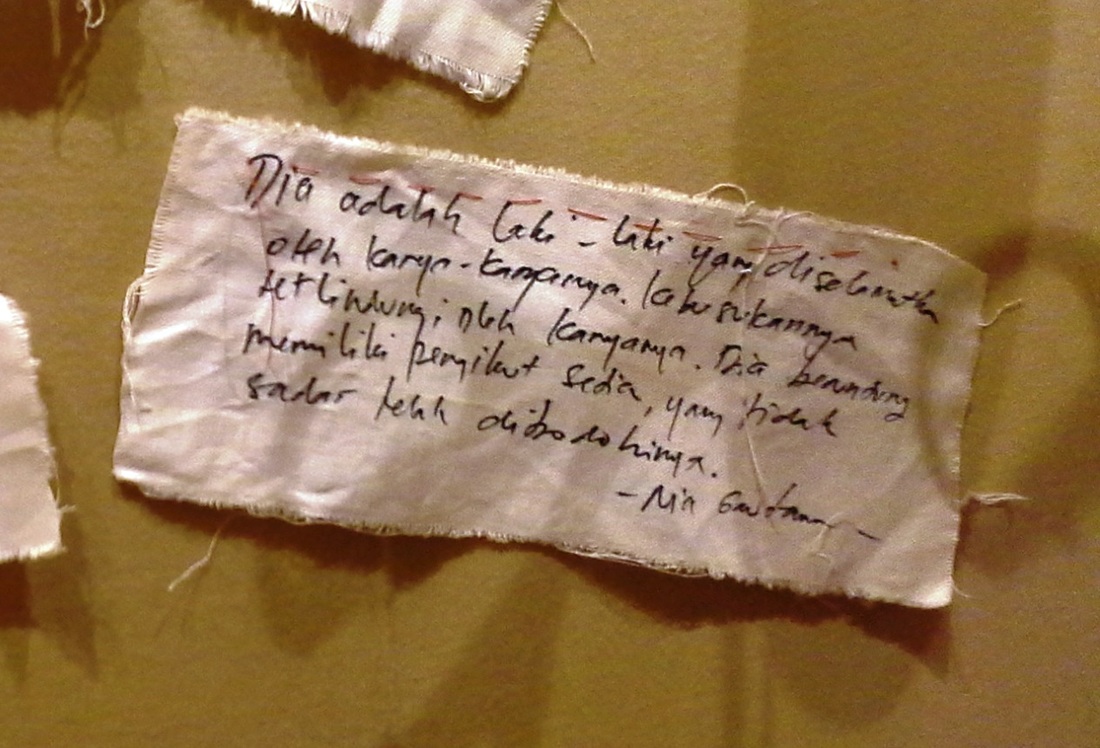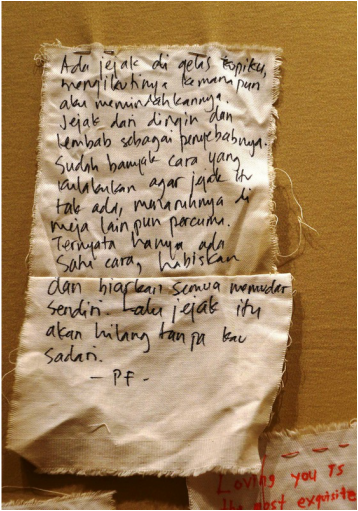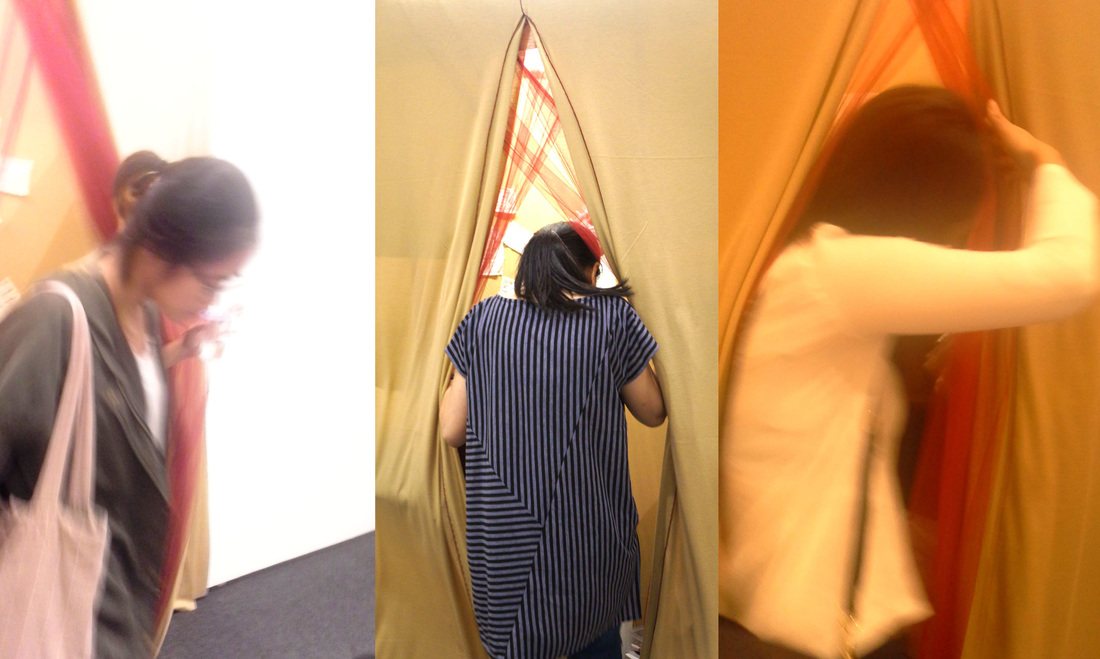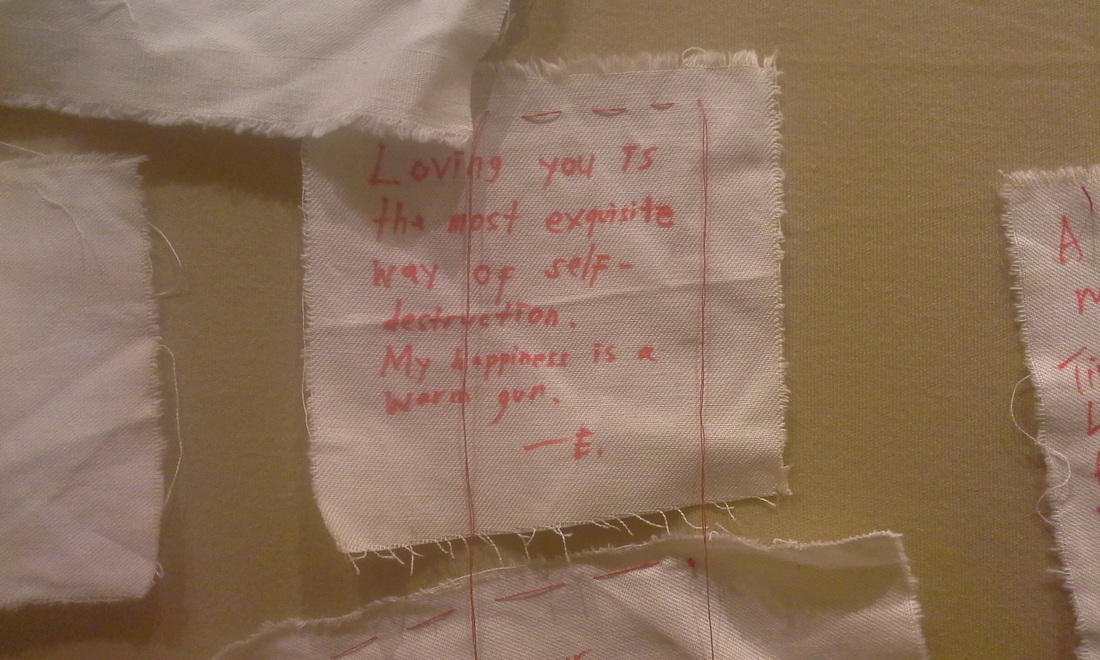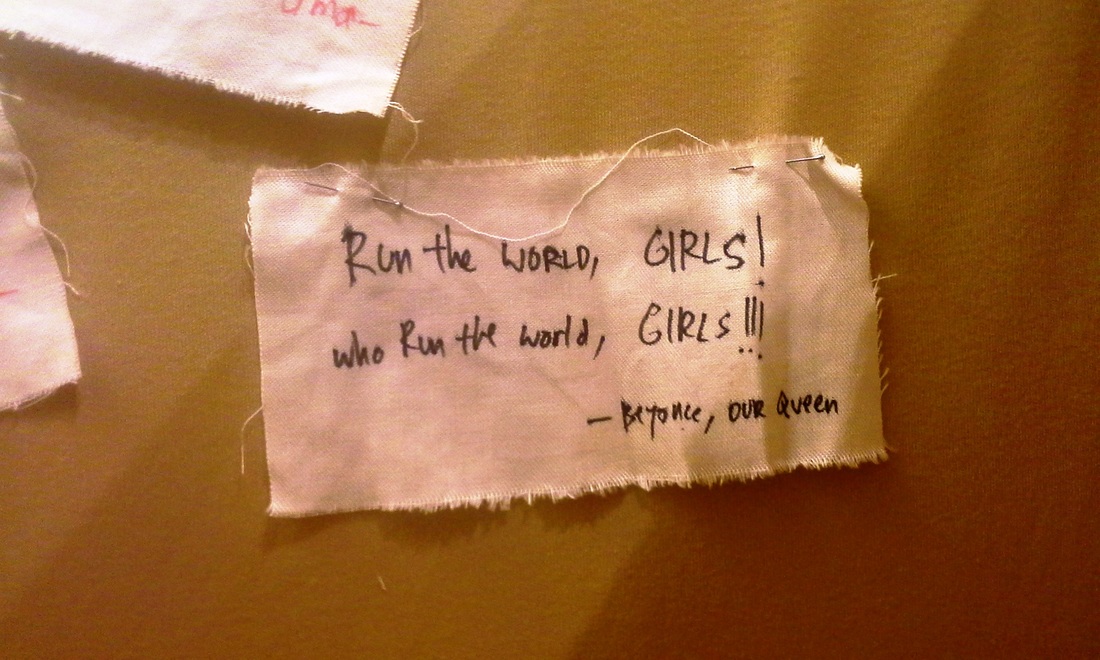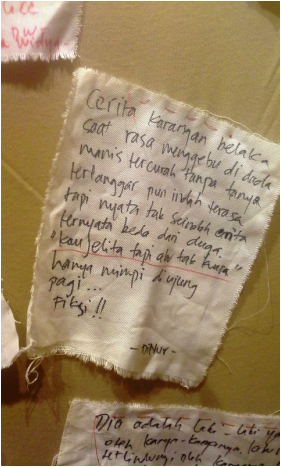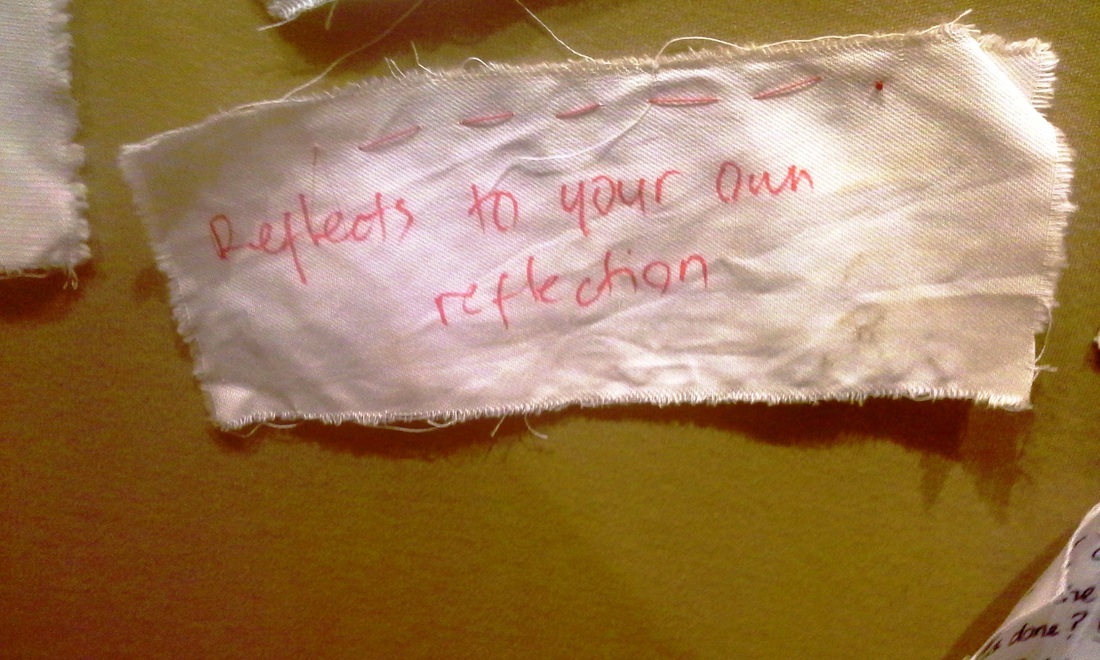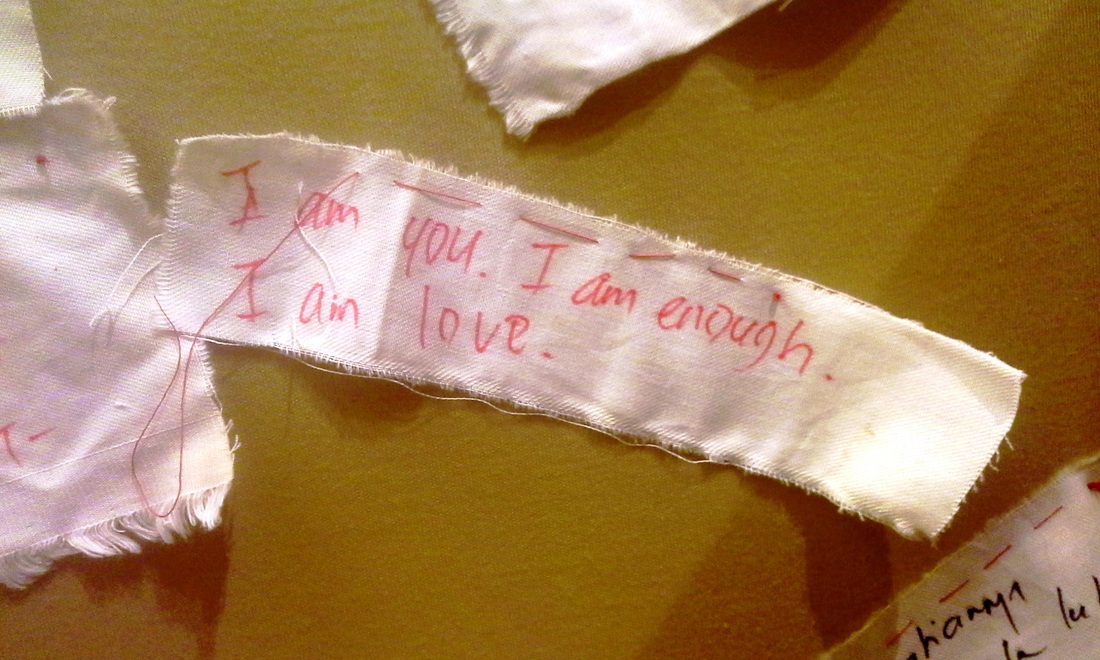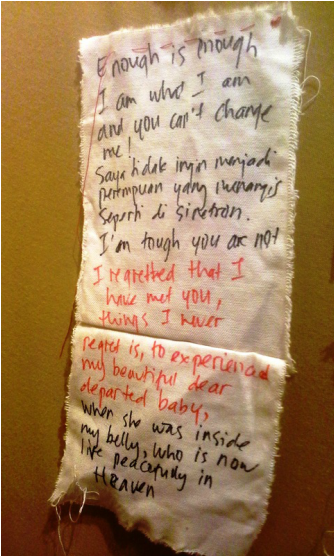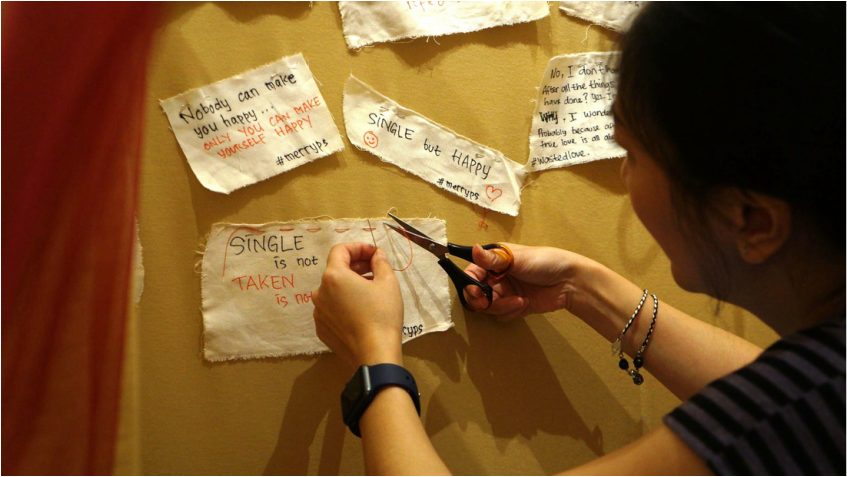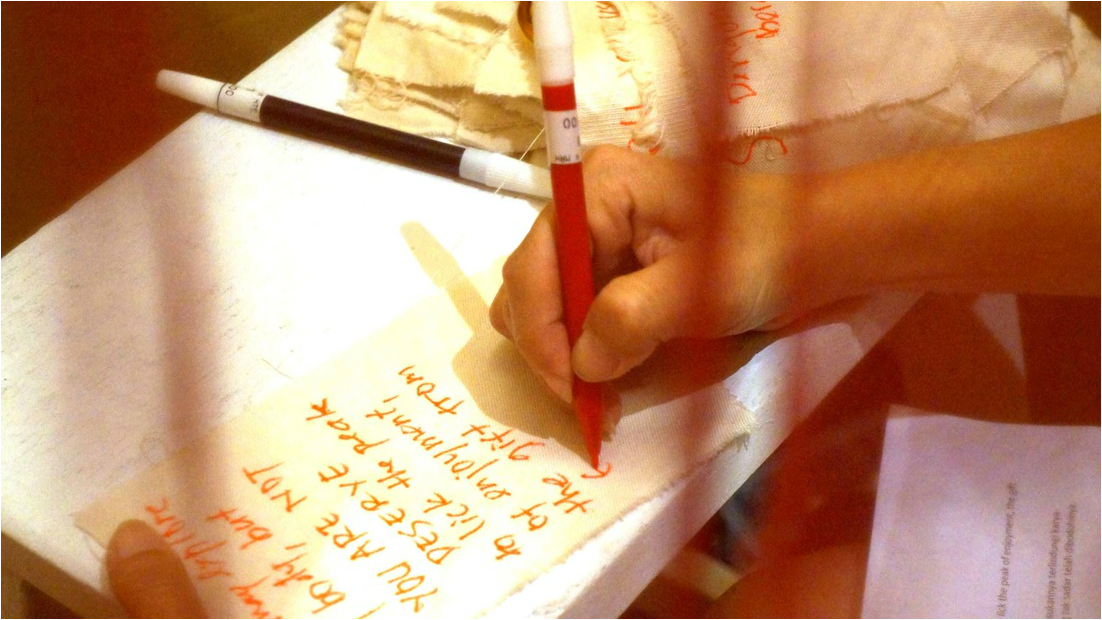THE RAPED LOVE
Mixed media installation and Interactive Performance - 2016
@ A.P.A Space
Jakarta
photos by : Ardina Raisa, Faiz Bolqiah, Nia Gautama
The Raped Love is inspired by stories told by strong women who have experienced emotional pain and trauma because of men. In interviews, I listened to stories of domestic violence and infidelity, of spouses who left without any reasons and who shirked their responsibilities even when their children were sick. I heard stories from women who were abandoned because of [extra-marital] pregnancies, who experienced sexual harassment in the hands of men they loved and adored, who endured verbal harassment, etc.
These harrowing experiences happen to women of all social backgrounds—educated women, intellectuals, and from lower social strata such as domestic workers, etc. I found that these stories share a connecting thread, in that the women all experience the same sort of bitterness: it is not about the physical pains, but rather of deep-seated emotional torment and long-term trauma, and of their lengthy struggle to recover from that pain, to regain their self-confidence and self-esteem. In the end, those women can begin slowly heal and revive, learning to stand up for themselves, using their bitter past to encourage themselves as subjects/rulers of their own fates.
In conclusion, The Raped Love reveals the reality of how a woman's calm countenance tends backfire on herself, placing her in a fragile position or in conditions that stunt her movements and sense of Self. However, behind her outward meekness, there's an extraordinary energy that helps her attend to her own wounds, address her sufferings wisely, heal herself, stand on her own feet and even to become a fierce protector of those closest to her heart.
These harrowing experiences happen to women of all social backgrounds—educated women, intellectuals, and from lower social strata such as domestic workers, etc. I found that these stories share a connecting thread, in that the women all experience the same sort of bitterness: it is not about the physical pains, but rather of deep-seated emotional torment and long-term trauma, and of their lengthy struggle to recover from that pain, to regain their self-confidence and self-esteem. In the end, those women can begin slowly heal and revive, learning to stand up for themselves, using their bitter past to encourage themselves as subjects/rulers of their own fates.
In conclusion, The Raped Love reveals the reality of how a woman's calm countenance tends backfire on herself, placing her in a fragile position or in conditions that stunt her movements and sense of Self. However, behind her outward meekness, there's an extraordinary energy that helps her attend to her own wounds, address her sufferings wisely, heal herself, stand on her own feet and even to become a fierce protector of those closest to her heart.

